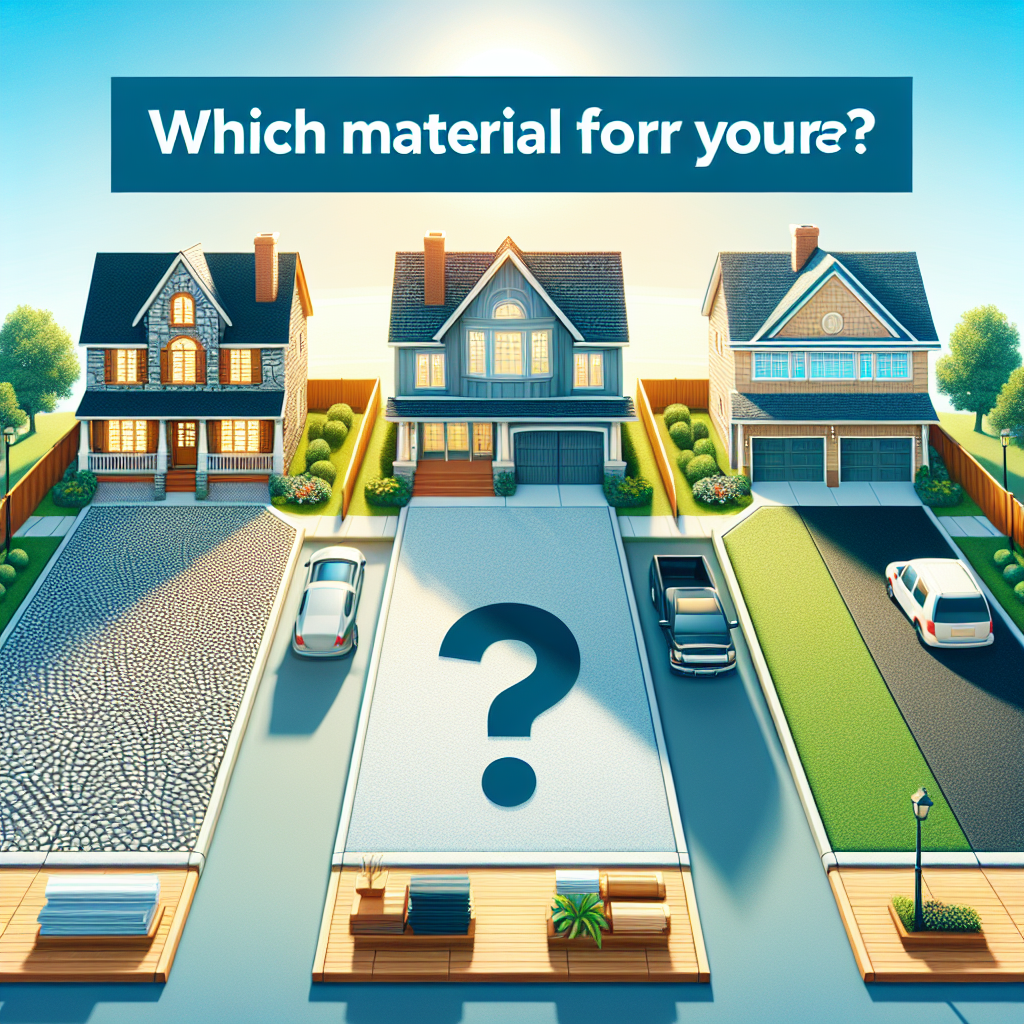When it comes to enhancing your home’s curb appeal, the driveway is often an overlooked element. However, choosing the right driveway material is critical—not just for aesthetics, but also for functionality, maintenance, and durability. This guide will walk you through the popular driveway options, addressing their advantages and disadvantages, so you can make an informed decision that suits your home and lifestyle.
Understanding Your Needs
Before diving into specific materials, consider your lifestyle and how you use your driveway. Do you need ample space for parking? Are you looking for something low-maintenance? Perhaps you live in an area with extreme weather conditions that may affect the performance of certain materials. Understanding your needs will help narrow down your options.
Popular Driveway Materials
1. Asphalt Driveways
Asphalt is one of the most common driveway materials due to its affordability and ease of installation. It provides a smooth, dark surface that complements many home styles.
Pros:
- Cost-effective: Generally cheaper than other materials like concrete and pavers.
- Quick installation: Typically installed in just a few hours.
- Flexible: Can withstand temperature fluctuations without cracking.
Cons:
- Regular maintenance: Requires sealing every few years to prolong its lifespan.
- Heat absorption: Can become very hot in summer months, which may not be suitable for certain climates.
2. Concrete Driveways
Concrete driveways are known for their durability and versatility. They can be poured in various shapes and colors, allowing for a customizable look that fits your home’s architecture.
Pros:
- Durability: Can last 20-30 years with proper maintenance.
- Low maintenance: Requires less upkeep than asphalt after the initial setting period.
- Versatile design: Can be stamped or stained for added aesthetic appeal.
Cons:
- Higher initial cost: More expensive than asphalt.
- Prone to cracking: Can crack in extreme temperatures if not installed properly.
3. Paver Driveways
Paver driveways are made from bricks or concrete blocks and are preferred for their aesthetic value. They offer a classic look and are available in numerous colors and patterns.
Pros:
- Adaptability: Individual pavers can be replaced if damaged.
- Unique appearance: Can be customized to create intricate designs.
- Drainage solution: Allows for better water drainage due to gaps between pavers.
Cons:
- Cost: More labor-intensive and can be pricier than asphalt and concrete.
- Weed growth: Weeds may sprout in the gaps if not properly maintained.
4. Gravel Driveways
Gravel is a classic choice for driveway material that brings a rustic charm. It is especially popular in rural areas due to its natural appearance and ease of installation.
Pros:
- Affordability: Generally the cheapest option available.
- Easy repair: Simple to replenish the gravel as needed.
- Natural drainage: Gravel allows water to permeate, reducing runoff.
Cons:
- Maintenance: Requires regular upkeep to replenish gravel and manage weed growth.
- Ruts and potholes: Can develop over time, necessitating repair.
5. Resin-bound Driveways
An emerging driveway trend, resin-bound gravel drives combine the classic look of gravel with a more solid surface that is stable underfoot.
Pros:
- All-weather use: Offers a durable and permeable surface.
- Aesthetically pleasing: Comes in various colors and styles to match your home.
- Minimal maintenance: Requires little upkeep compared to traditional gravel.
Cons:
- Cost: Generally more expensive than traditional gravel.
- Installation complexity: Requires a professional installation for best results.
Making the Right Choice
Ultimately, the best driveway material for your home will depend on your specific needs, budget, and aesthetic preferences. Here are some things to consider when making your decision:
- Budget: Assess your budget not only for initial installation but also for long-term maintenance.
- Climate: Consider how your local weather conditions may impact different materials.
- Usage: Evaluate how much traffic your driveway will see. Heavier vehicles may require more durable materials.
Conclusion
With so many options available, it’s essential to take the time to think about what you want from your driveway. Whether you opt for the classic look of pavers or the affordability of asphalt, each material has its unique benefits and challenges. By understanding your needs and weighing the pros and cons, you can make an informed decision that enhances your home’s curb appeal while also catering to your lifestyle. Happy paving!
By addressing your driveways’ aesthetic, functional, and practical aspects, you can find the ideal material that not only complements your home but also meets your needs for years to come.


